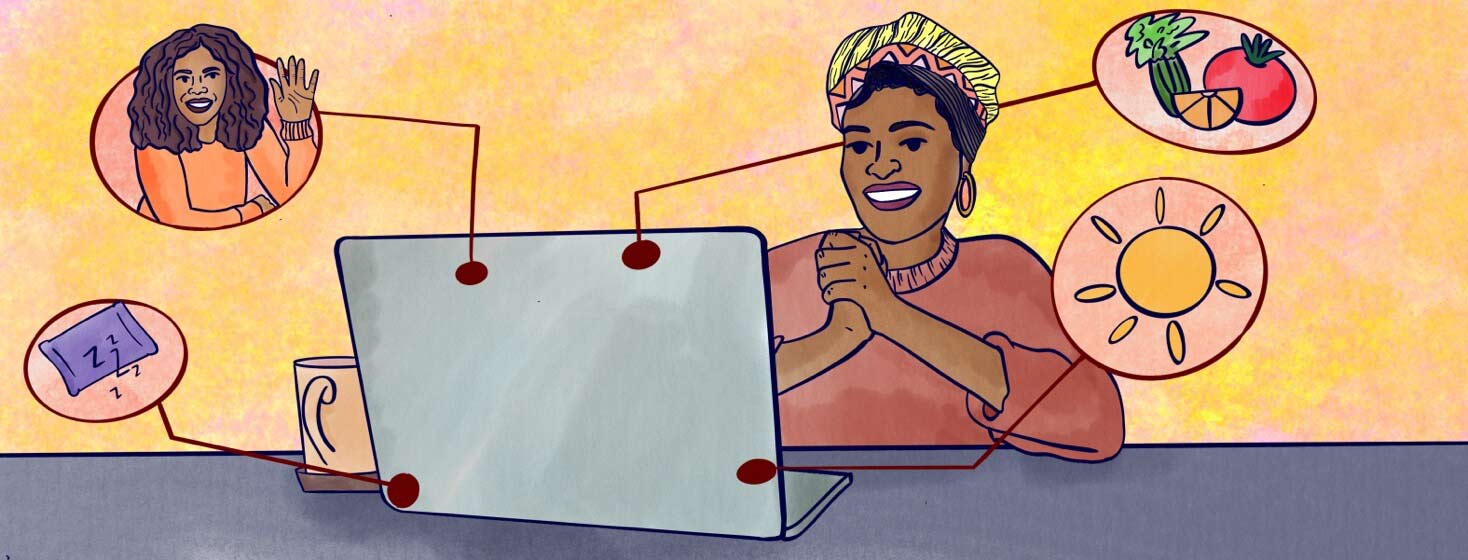The Importance of Mental Well-Being and the Cancer Patient
It is well known that mental health affects your physical health and the way your body functions. When we feel disappointed, stressed, and grieved, our physical health can be compromised.
Mental well-being is an important part of wellness
I experienced this as a caregiver when my husband was recently diagnosed with cancer. We often think of wellness as physical health, but wellness is really the integration of physical, mental, and spiritual well-being. Attention must be given to all these dimensions, unless over time, one’s health, well-being, and quality of life may be affected.
It is quite easy to forget about caring for oneself during a cancer diagnosis or as a caretaker of a loved one.
Human connections
Key is connecting with others living with cancer who can help us feel less alone after a diagnosis. I discovered a valuable resource in our Blood-Cancer.com community. This online site provides education, and support, and connects with cancer patients and caregivers online to reduce anxiety, stress, and isolation. I am honored to write articles that share my thought and experiences to others here. It has been a gratifying opportunity to both learn from and contribute to this blood cancer community.
Other strategies
I rediscovered the importance of these strategies to boost my mental wellness:
- The importance of enough sleep- Our body needs sleep and rest to heal and renew our energy. Sleep helps regulate hormones that are directly related to mood and emotions. Both during my initial diagnosis of blood cancer and the recent cancer journey as a caregiver, my mind was like a video camera, constantly thinking and worrying and unable to sleep. I began to try meditation, journaling and essential oils like eucalyptus before bed which have greatly improved my ability to sleep and wake up refreshed.1,2
- A healthy, balanced diet- It is suggested that we include fruits, vegetables, in our diet and avoid caffeine, sugar and processed food as a natural defense against stress.1,21,2
- Exercise daily- physical exercise helps keep you physically strong, mentally alert and reduces stress. Blood flow is improved, with increased oxygen you feel more energetic and mentally alert. We have discovered daily walks with our dog can make a big difference in how we feel.1,2
- Sunlight- Vitamin D in sunlight releases endorphins, or ‘happiness hormones” in the brain which can greatly improve our mood. This adds to the benefit of daily walks outdoors.1,2
- Try to deal with stress effectively- this is a genuine challenge. When possible, try to avoid situations that cause stress. See problems as opportunities that may help. Tackle tasks “one step at a time’. This was wise advice given to me by my oncologist when dealing with my husband’s recent diagnosis. I have found that writing down the cause of my stress and actions taken has helped.1,2
- Be social-Isolation and lack of communication can greatly affect your mental and physical status. This was true in my situation, as we had recently moved three hours away from friends and family when my husband was diagnosed with cancer. I felt overwhelmed and alone. Fortunately, a close friend, recognized my feelings of sadness and made a daily effort to talk and make me laugh. She was non-judgmental and I could honestly vent and express my feelings. This made such a difference in my mood. Our new church parish has provided both spiritual and social comfort during this difficult time.1,21,2
- Find and practice new hobbies- Explore a new activity that can refresh your brain. I joined a local yoga studio which has provided a clearing of my mind as well as new social relationships.1,2
The above strategies have helped me deal with the challenges as a caregiver during my husband’s illness.
I have discovered wellness, is a personalized approach to living life that allows you to be the best kind of person you can be. The above strategies are most effective.
Editor's Note: Blood-Cancer.com celebrates its 4th Anniversary this week. Thank you to all the contributors and moderators, each living with blood cancer as a patient, survivor, or caregiver, who have generously shared your life experiences with others. Thank you, too to the thousands who have visited the site. Your presence has inspired Blood-Cancer.com to offer information, support, and validation while connecting with others also impacted by blood cancer.

Join the conversation